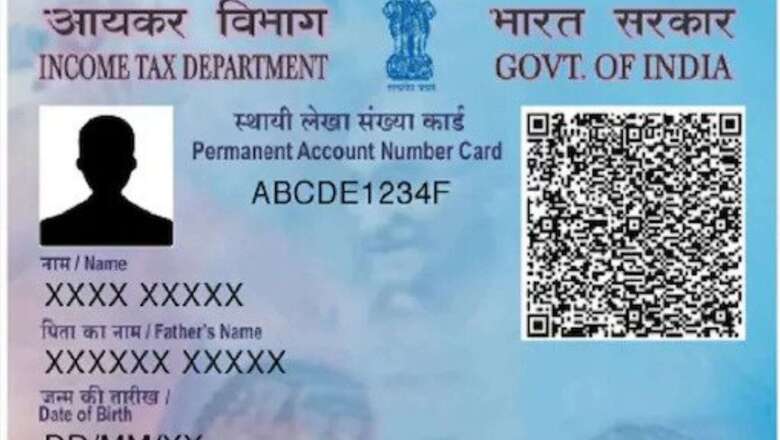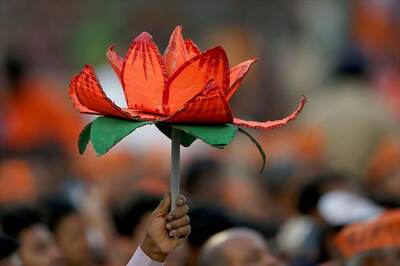
views
People who deposit or withdraw cash more than Rs 20 lakh from the bank account, including co-operative banks and post offices, in a financial year will now have to quote their permanent account number (PAN) or Aadhaar number. The requirement has been made mandatory from May 26 with the new rules coming into effect. The rules will also apply to the opening of a current account. Here’s what the new rules say and why it has been made mandatory:
What the Rules Say
According to a notification by the Central Board of Direct Taxes (CBDT) dated May 10, “Every person shall, at the time of entering into a transaction specified in column (2) of the Table below, quote his permanent account number or Aadhaar number, as the case may be, in documents pertaining to such transaction, and every person specified in column (3) of the said Table, who receives such document, shall ensure that the said number has been duly quoted and authenticated.”
Column (2) mentions over-Rs-20-lakh withdrawals, cash deposits and opening of current account or cash credit account where the new rules will be applicable.
Column (3) mentions persons who receive PAN and Aadhaar and ensures that the numbers are authenticated. “A banking company or a co-operative bank to which the Banking Regulation Act, 1949 (10 of 1949) applies (including any bank or banking institution referred to in Section 51 of that Act); (ii) Post Master General as referred to in clause (j) of Section 2 of the Indian Post Office Act, 1898 (6 of 1898),” according to column (3) of the table in the notification.
According to the notification, the PAN or Aadhaar number, along with demographic information or biometric information of an individual, will be submitted to the official concerned for the purposes of authentication.
Why Has It Been Made Mandatory?
It will help the income tax department monitor high-value cash transactions, and deposits/withdrawals where tax would not be getting paid by the individual otherwise on his or her income.
The rules will help the government trace the movement of cash in the financial system. These rules are expected to further tighten the loopholes, along with the already existing provision of TDS deduction under Section 194N of the Income Tax Act, 1961.
Nangia & Co LLP Partner Shailesh Kumar said, “This may help the tax department to plug some loopholes, such as for those high-value deposits and withdrawals where they say they don’t have PAN. This could be applied in case of agriculturists or the non-income taxpayers. The PAN-Aadhaar interoperability will help banks to record details for those who don’t have PAN. Earlier, there wasn’t any threshold for producing PAN for withdrawals.”
Meanwhile, the government has also asked people to link their PAN number with Aadhaar. The finance ministry has said after March 31, 2023, the PAN of taxpayers who fail to intimate their Aadhaar, as required, shall become inoperative and all the consequences under the Act (Income Tax Act, 1961) for not furnishing, intimating or quoting the PAN shall apply to such taxpayers.
Read all the Latest Business News here




















Comments
0 comment